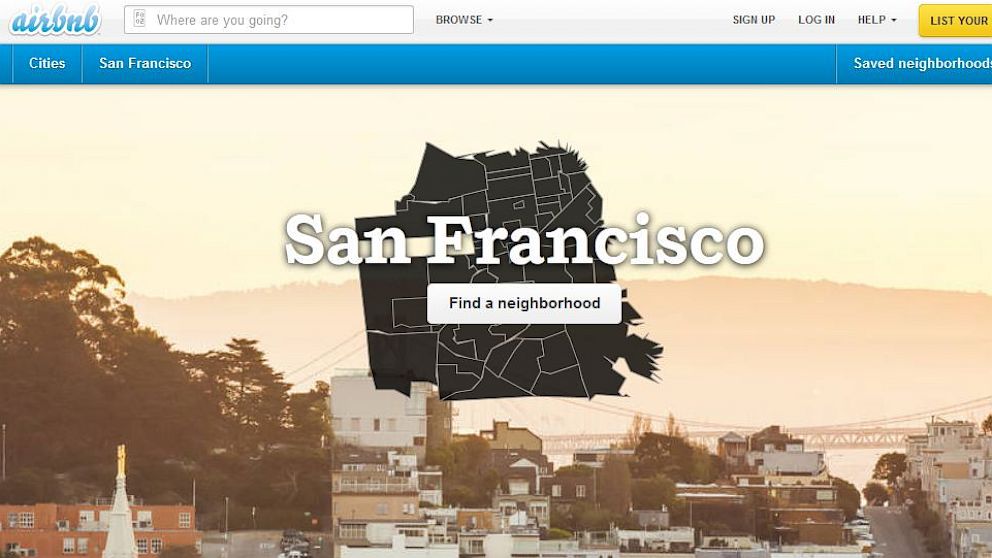Airbnb: Towns Crack Down on Homeowners Who Take Guests
A growing chorus of critics tire of cities dotted with flop houses.

Sept. 9, 2013 -- Are homeowners and renters breaking the law when, to make some extra money, they charge strangers for staying overnight on their couch or in an extra bedroom?
A growing chorus of critics—including landlords, municipalities, neighboring homeowners and local B&Bs—claim that yes, they are. They want to crack down on sites including Airbnb, which facilitate short-term stays by bringing hosts and guests together.
Such facilitation has become big business.
By its own account, Airbnb's growth has been exponential. It booked 10 million guest-nights in June 2012, up from half that number six months before. It now lists lodgings in more than 30,000 cities in 192 countries. It makes money by collecting a percentage of what the guest pays and the host receives.
Silver Lake, a neighborhood of Los Angeles, is the latest to cry foul.
According to the L.A. Times, a committee of the Silver Lake Neighborhood Council heard complaints from locals worried about safety issues and traffic stemming from an increase in local transient guests.
The news site Eastsider LA says a recent check of Airbnb showed more than 200 listings for short-term lodgings in Silver Lake, ranging from a shared studio apartment for $60 a night to a two-bedroom house with pool for $425 a night.
Council member Anne-Marie Johnson told the Times that such arrangements violate local zoning laws, which prohibit rentals shorter than 30 days, except for hotels and licensed bed-and-breakfasts. Addressing the belief that hosts are taking in the occasional guest in order to help pay their mortgage or otherwise defray living costs, Johnson told the Times: "People have jumped into that urban myth: 'We had to do it or we wouldn't survive.' Then why not run a bordello? If you're really upside down in your house, then have an escort service run out your house. Where does it end?"
She and other critics contend that many Airbnb hosts are running what amount to hotels, without paying the applicable fees or taxes, or abiding by the applicable regulations. They cite examples of owners who have subdivided their properties into multiple tiny units, to accommodate and profit from transient guests.
Cities including Yountville, Calif., Sedona, Ariz., and New Orleans have passed rules against property owners charging rent for short-term stays.
NEW ORLEANS PROMOTED AS GAY HONEYMOON HAVEN
New Orleans City Business says local ordinances prohibit unlicensed property owners from renting to anyone for less than 60 days in the French Quarter and less than 30 days elsewhere in the city. It quotes a member of the Professional Innkeepers Association of New Orleans, which represents 55 B&Bs, as saying she doesn't object to competition from amateurs, she just wishes that amateurs had to pay the same fees and taxes as licensed B&Bs. Then both would have a level playing field.
In San Francisco, where Airbnb is headquartered, the San Francisco Apartment Association, an advocacy group for landlords, has its own bone to pick. Janan New, the group's executive director, tells the New York Times that, moving forward, the association's policy will be to evict tenants who take in short-term paying guests. "I believe [Airbnbn] should have the social responsibility to disclose what the laws are in the jurisdiction that they're in," the Times quotes New as saying.




